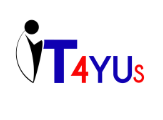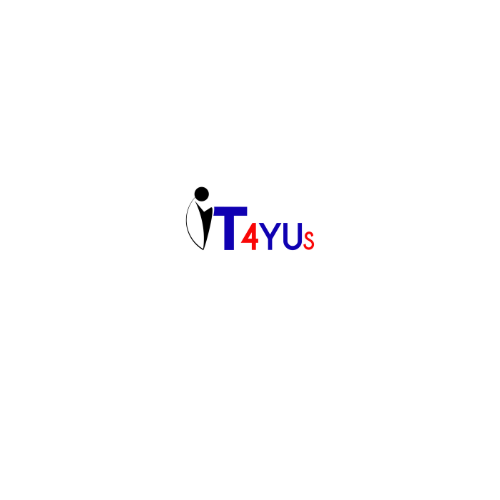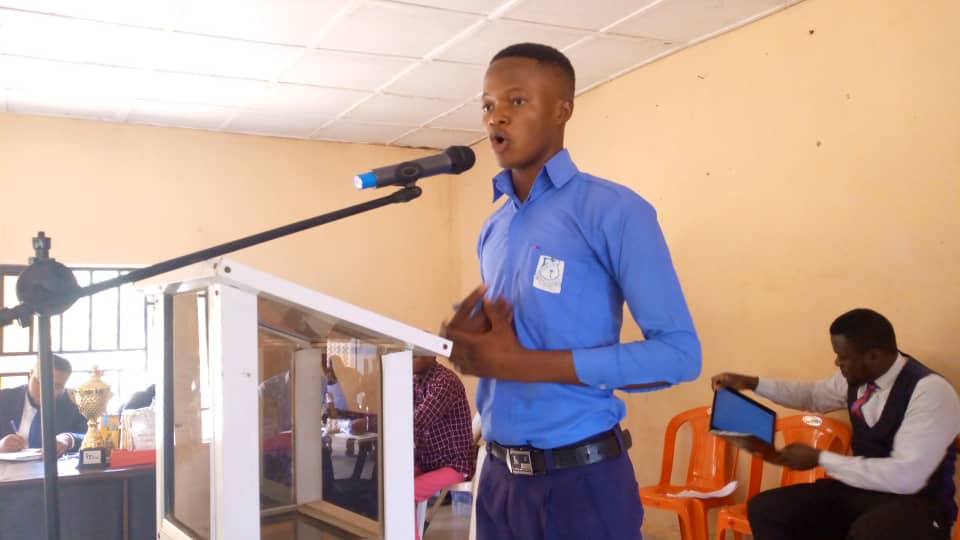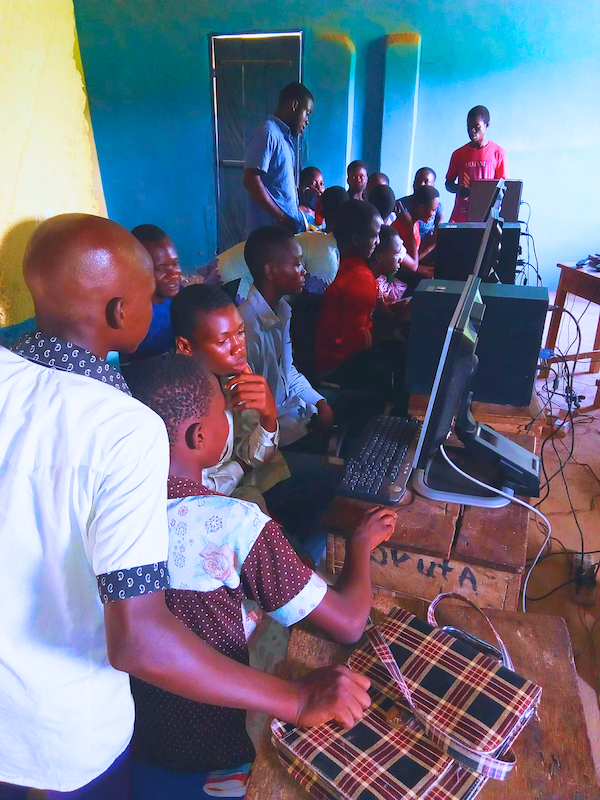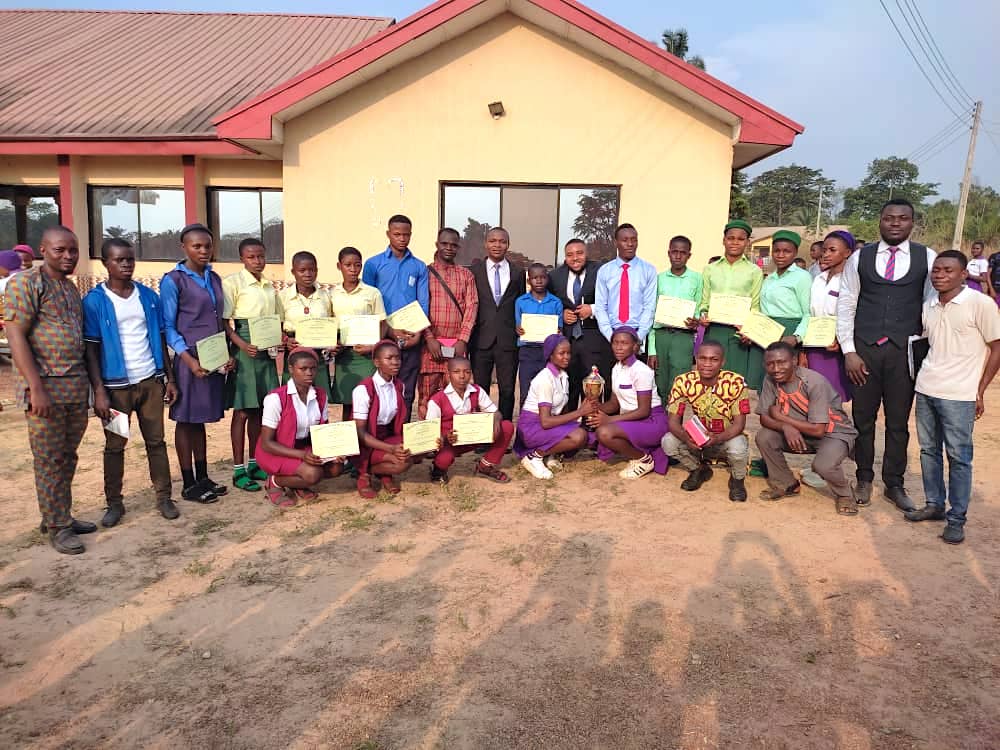In spite of the disparity between persons with disabilities and the everyday people, as engendered by a myriad of factors, ranging from societal disapproval to ignorance, illiteracy, indifference and willful insensitivity, the plights of persons with disabilities is not entirely a story of doom, after all, Thanks to the pervasive influence of technology.
In other words, if any phenomenon has breached the gap between persons with disabilities and others, then, that phenomenon is technology. Without a scintilla of controversy, the world today without the evolution of technology would be unimaginable; To this end, illiteracy, especially from the perspective of information and communication technology is not an option for anyone who seeks to move at the
world’s pace. Thankfully, persons with disabilities are not left out in the cold, since they find some solace in the immense benefits offered mankind by technology.
Ditto other members of the society, the evolution of technology has brought a great deal of respite to persons with disabilities in, inter alia, education, information, communication, mobility, productivity, and human existence in general. Safe to say that technology is now a level playing field for all.
To start with, the evolution of technology has removed to a reasonable extent, the stumbling blocks inherent in the education of persons with disabilities. For instance, in times past, it was unthinkable that a blind and/or deaf person could go to school. As a matter of fact, persons of this nature were deemed good for nothing, and as such, a suggestion that a blind or deaf person could be formally educated like every other person was greeted with reproach, since learning majorly requires a good sense of vision and audition. However, with the surge of civilization, people began reckoning with the possibility of such individuals being schooled without marked difficulty.
Meanwhile, in the 19th century, Louis Braille, a French teacher, who was himself blind, developed a tactile system of reading, in which blind persons like him could learn by touching inscribed bumpy dots on papers with their fingers.
In modern times, the influence of technology in the education of blind persons has become even more intriguing, as such individuals can now make use of computers, subject only to the installation of assistive screen reading softwares like job access with speech, {JAWS}, an application that converts displayed texts to speech, with a view to enabling a blind person to operate laptops and desktops like anyone. Also, persons with poor eye sight may take advantage of screen magnifiers. With these, those with sight deficiencies, as well as those who cannot see at all, can browse the internet, undertake correspondence learning, have notes in soft copies, Etc. Besides, there are digital audio recorders specially made for blind persons, so that those who prefer listening to other forms of studying can learn accordingly.
Again, hearing aids greatly avail those with hearing impairment/deafness, as such aids in no small measure, mitigate the hardship that comes with their disability. With hearing aids, such persons are able to get along in classes, thus subserving a favourable and conducive learning environment for them.
Furthermore, mobility for persons with disabilities has been given a new lease of life.
Nowadays, there are special vehicles being manufactured in such a way as to suit the peculiarity of individuals with disabilities hampering motor skills. Interestingly, the crippled, for instance, can now ply major roads, since there are cars specially designed for them. Moreover, blind persons, especially in developed countries where internet access is constant, are able to navigate their way through general packet radio service, GPRS. With specially developed voice assistant applications, a blind person is able to move independently, with little or no assistance at all from another person.
In the same vein, it is gladdening to know that technology has immensely integrated blind and/or persons with visual impairment into the mainstream society, most especially, as it concerns information and communication. In fact, it would bewilder many to know that blind persons have been so blessed by technology that they can operate virtually all sorts of mobile phones in the world today. This is because most phones now come with voice and sound assistant applications, such as talk-back, voice over, Google text to speech, speech synthesizers, Etc.
Invariably, those without sight, besides being able to independently make and receive phone calls, can install apps, read text messages, effectively use various social media platforms like Facebook, twitter, Whatsapp, 2go, Eskm, Snapchart, Badoo, Etc.
In addition, most mobile phones, especially android and I phones often have apps which describe colours, as well as identify money for the blind. However, since utopia is no more or less a myth, it is pertinent to note that it is not yet uhuru. Unless the general public keeps itself abreast of these glad tidings, the blessings of technology as it affects persons with disabilities wouldn’t be fully appreciated.
Therefore, strident orientation undertakings would enormously catalyze the emancipation of persons with disabilities from the twin evils of discrimination and stigmatization. Consequently, corporate bodies would no longer be reluctant to employ persons with disabilities, since technology has made such persons as productive as
their able-bodied folks. Schools would depart from the usual practice of rejecting students with disabilities, since technology provides an enabling environment for all and sundry to learn effectively.
Besides public orientation, government must ensure that expensive devices for persons with disabilities come at subsidized rates.
Developers of various mobile apps should as well ensure that more giant strides are made, with respect to the plights of persons with disabilities. For example, even though a blind person can now use Facebook, Whatsapp, twitter etc, he/she may be uncomfortable with photos and maps, especially when there are no descriptive captions attached thereto.
In conclusion, the society should be made to see beyond its ignorance that persons with disabilities are no lesser human beings, and should not be treated as such. Given a veritable milieu to thrive, persons with disabilities would be at level pegging with their able-bodied folks and the society at large will be better for it.
~~~~Written by Chukwu Chikwado (Law Faculty Unilag)
